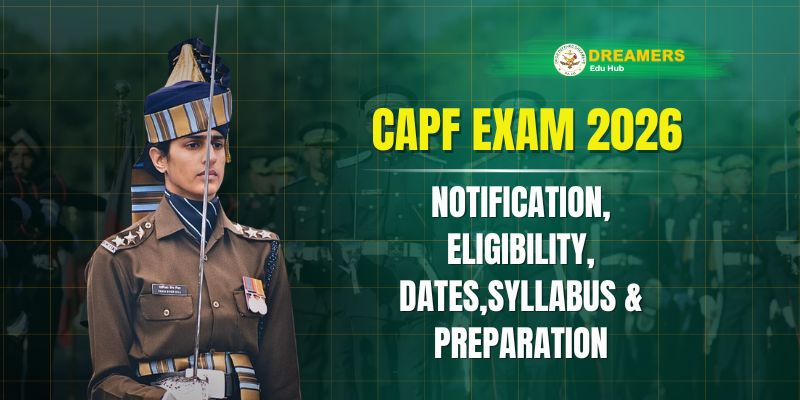Serving the nation as part of the Indian Army is a dream for many. For law graduates, the JAG EXAM opens a prestigious and unique path to join the Armed Forces as a commissioned officer in the legal branch known as the Judge Advocate General’s Department. This entry allows advocates and legal professionals to combine their passion for law with their desire to serve in uniform.
This blog will cover every detail about JAG entry in the Indian Army — including eligibility criteria, age limit, syllabus, selection procedure, jag ssb interview, training, rank structure, and career opportunities after selection. By the end, you’ll know exactly how to prepare and succeed in the judge advocate general exam.
What Is JAG Entry?
The Judge Advocate General’s Branch (JAG Branch) is the legal and judicial wing of the Indian Army. Officers in this branch advise military commanders on legal and disciplinary matters, conduct courts-martial, draft legal documents, and represent the Army in various tribunals and legal forums.
The JAG EXAM is not a written test in the traditional sense; rather, it’s a selection process through which law graduates are recruited into the Army’s legal branch as Short Service Commissioned Officers. This entry is open to both men and women, making it one of the most respected legal career options in uniform.
Indian Army JAG 124th Course (October 2026) – Details Table
| Event | Date |
|---|---|
| Application Start Date | 27 January 2026 |
| Application Last Date | 27 February 2026 |
| Exam Date | Notify Soon |
| Admit Card | Before Exam |
| Official Website | Visit Official Website |
| Category | Fee |
|---|---|
| All Candidates | No Application Fee |
| Criteria | Age |
|---|---|
| Minimum Age | 21 Years |
| Maximum Age | 27 Years |
| Age Relaxation | As per Indian Army Rules |
Why Choose the JAG Branch?
There are several reasons why thousands of law graduates aspire to join the Army through the JAG entry:
-
National Service with Legal Expertise: You serve the nation while applying your professional knowledge of law.
-
Prestige and Honour: You earn the rank, uniform, and respect of an Army officer.
-
Diverse Legal Work: From courts-martial to human-rights issues, the job offers variety and intellectual challenge.
-
Attractive Pay and Perks: Officers receive handsome salary packages, allowances, medical care, accommodation, and travel benefits.
-
Personal Growth: You develop leadership, decision-making skills, and discipline — qualities that last a lifetime.
Eligibility Criteria for JAG Entry
Before applying for the JAG EXAM, every candidate must meet the following criteria.
Nationality
-
The applicant must be a citizen of India.
-
Candidates from Nepal are also eligible.
-
Individuals of Indian origin who have migrated from certain countries may be considered if they possess a valid certificate of eligibility from the Government of India.
Marital Status
-
Candidates must be unmarried at the time of application and during training.
Age Limit
-
The minimum age is 21 years, and the maximum is 27 years on the cut-off date mentioned in the official notification.
-
For example, candidates born between 2 January 1999 and 1 January 2005 are typically eligible.
-
Age relaxation is provided only as per government norms.
Educational Qualification
-
The candidate must have completed an LLB degree with a minimum of 55% aggregate marks.
-
The degree can be either a three-year course after graduation or a five-year integrated course after 10+2.
-
The degree must be from a recognized university and the candidate should be eligible for enrolment as an advocate with the Bar Council of India or a State Bar Council.
-
In recent years, a valid CLAT-PG score is also required for shortlisting.
Physical and Medical Standards
-
Candidates must meet the Army’s medical and physical fitness standards.
-
Requirements include acceptable height, weight, eyesight, and general physical health.
-
Physical fitness is an essential part of the overall assessment, even though the entry is for law graduates.
How to Apply for the JAG EXAM
The application process for JAG entry is straightforward but requires attention to detail:
-
Notification Release: The Indian Army releases an official notification on its website for each JAG course (e.g., 34th Course, 35th Course, etc.).
-
Online Application: Candidates apply through the Join Indian Army portal by registering and filling in their personal, educational, and professional details.
-
Document Upload: You must upload scanned copies of your photograph, signature, degree certificate, mark sheets, CLAT-PG scorecard (if applicable), and proof of bar enrolment.
-
Verification: Once submitted, applications are screened for eligibility.
-
Shortlisting: Based on your academic performance and CLAT-PG score, the Army shortlists candidates for the jag ssb interview.
Selection Procedure for JAG Entry
The selection process consists of several stages. It’s important to understand each phase carefully because performance in every stage determines your final selection.
Stage 1 – Shortlisting of Applications
-
The initial shortlisting is purely based on academic marks and CLAT-PG score.
-
Only shortlisted candidates are called for the jag ssb interview.
Stage 2 – SSB Interview
The SSB (Services Selection Board) interview is a five-day process that evaluates your personality, intelligence, and officer-like qualities. It is the core stage of the judge advocate general exam selection process.
Day 1 – Screening Test:
Consists of an Officer Intelligence Rating (OIR) test and Picture Perception & Discussion Test (PPDT). Successful candidates move to the next stage.
Days 2-4 – Psychological and Group Testing:
Includes Thematic Apperception Test (TAT), Word Association Test (WAT), Situation Reaction Test (SRT), Group Discussions, Group Planning Exercises, Outdoor Tasks, and Personal Interviews.
Day 5 – Conference:
All assessors discuss your performance and give final recommendations. Candidates who are “Recommended” proceed to the next phase.
Stage 3 – Medical Examination
-
Recommended candidates undergo a comprehensive medical check-up by an Army Medical Board.
-
The test evaluates overall health, vision, hearing, dental condition, and physical fitness.
-
Only medically fit candidates qualify for final selection.
Stage 4 – Merit List and Joining
-
A final merit list is prepared based on performance in the jag ssb interview and medical results.
-
Candidates placed high in the merit list receive joining letters for training at the Officers Training Academy (OTA) in Chennai.
Free SSB Batch by Doon Defence Dreamers
Doon Defence Dreamers is one of the best defence coaching institutes in Dehradun, well known for its outstanding results and dedicated training programs. The academy proudly offers a Free SSB Batch for all defence aspirants preparing for NDA, CDS, AFCAT, and other exams. Along with expert-written exam guidance, students also receive intensive physical training and personality development sessions. The institute focuses on overall growth — from academics to physical fitness and interview preparation. With experienced mentors and a disciplined atmosphere, Doon Defence Dreamers continues to produce top selections every year. It truly stands out as the best SSB coaching in Dehradun for all defence aspirants.

Training and Commissioning
-
Training duration at OTA is 49 weeks (approximately one year).
-
During this period, candidates undergo rigorous physical, mental, and professional development programs.
-
Upon successful completion, they are commissioned as Lieutenants in the Indian Army’s JAG Branch.
-
After commissioning, officers are posted to various Army units and headquarters where they handle legal, disciplinary, and administrative responsibilities.
Syllabus and Preparation for the JAG EXAM
Even though there is usually no written examination, candidates should still prepare thoroughly for both the judge advocate general exam and the jag ssb interview process.
Legal Topics to Focus On
-
Constitutional Law
-
Criminal Law and Procedure
-
International Law
-
Administrative and Military Law
-
Contract Law and Specific Relief
-
Human Rights Law
-
Legal Reasoning and Current Legal Developments
A good grasp of these topics will help during shortlisting (via CLAT-PG) and in the personal interview.
General Preparation Tips
-
Revise Legal Fundamentals: Brush up on key cases, landmark judgments, and amendments.
-
Stay Updated: Read about defence laws, military justice, and international humanitarian law.
-
Improve Communication Skills: The SSB tests clarity of thought and articulation.
-
Physical Fitness: Maintain good stamina and endurance to meet medical standards.
-
Practice for Psychological Tests: Attempt mock TAT, WAT, and SRT exercises.
-
Know Your Story: Be ready to explain your motivation for joining the Army’s legal branch and your understanding of the JAG role.
Remember: Confidence, discipline, and honesty are as important as legal knowledge.
Posts and Career Progression After JAG Entry
Once you clear the JAG EXAM and complete your training, you begin your career as an officer in the JAG Branch. Here’s how your progression typically unfolds:
Initial Rank
-
On commissioning, you are appointed as a Lieutenant.
Promotions
-
Captain: After approximately 2 years of service.
-
Major: After about 6 years.
-
Lieutenant Colonel: Around 13 years of service.
-
Colonel and above: Through selection based on merit and performance.
Nature of Work
As a JAG officer, your duties involve:
-
Advising military commanders on legal and disciplinary issues.
-
Conducting courts-martial and handling legal cases related to service law.
-
Representing the Army in legal proceedings and tribunals.
-
Drafting and reviewing contracts, agreements, and administrative policies.
-
Ensuring compliance with military regulations and human-rights obligations.
Type of Commission and Service Tenure
-
JAG officers are inducted through the Short Service Commission (SSC Non-Technical) scheme.
-
The initial tenure is 10 years, extendable up to 14 years depending on performance and availability of vacancies.
-
Some officers may later be considered for Permanent Commission based on merit and service requirements.
-
During service, officers enjoy all benefits entitled to commissioned officers in the Indian Army, including pay, pension (if applicable), medical care, and allowances.
Pay Scale and Benefits
-
Rank: Lieutenant (on commissioning)
-
Pay Level: Level 10 of the Defence Pay Matrix
-
Salary Range: Approximately ₹17 – 18 lakh per annum (including allowances)
-
Other Benefits:
-
Free medical facilities for self and dependents
-
Accommodation and ration allowances
-
Leave travel concession and uniform allowance
-
Canteen and mess privileges
-
Post-retirement pension benefits (if eligible)
-
Vacancies and Opportunities
The number of vacancies through each JAG EXAM cycle is limited, making it one of the most competitive law entries in the country. Typically, the Army releases around 6 vacancies for men and 3 for women per course. These small numbers highlight the exclusivity and prestige of the JAG Branch.
Notifications are issued twice a year — usually in April and October — for courses commencing in April and October of the following year.
Tips to Crack the JAG EXAM and SSB Interview
-
Understand the Role: Know the functions of the Judge Advocate General’s Department.
-
Be Genuine: The SSB panel values honesty and self-awareness over memorized answers.
-
Stay Fit: A healthy lifestyle reflects positively during both the medical exam and psychological tests.
-
Build Legal Awareness: Read about military law, human rights, and constitutional provisions related to defence services.
-
Develop Leadership Qualities: Show initiative, responsibility, and teamwork in every group activity.
-
Mock Interviews: Practise answering questions about your academics, law background, and motivations.
-
Stay Positive: Confidence and optimism are key indicators of officer-like qualities.
-
Time Management: During group tasks and discussions, communicate clearly without dominating others.
By following these tips, you can perform strongly in the jag ssb interview and improve your overall merit score.
Frequently Asked Questions (FAQs)
1. Is there a written exam for JAG entry?
Usually, there is no separate written exam. Candidates are shortlisted through their CLAT-PG score and then called for the jag ssb interview.
2. Can female candidates apply?
Yes, both male and female law graduates are eligible for the judge advocate general exam.
3. What is the duration of training?
Training at the Officers Training Academy lasts for approximately 49 weeks.
4. What happens after the training?
You are commissioned as a Lieutenant in the JAG Branch and posted to legal departments within Army formations.
5. What is the service tenure?
The tenure is 10 years initially, extendable up to 14 years, with possible opportunities for a permanent commission.
Conclusion
The JAG EXAM is not just a career opportunity — it is a calling for law graduates who want to serve their nation with honour, discipline, and integrity. Through this entry, you step into a life of responsibility, prestige, and professional growth.
To recap:
-
Eligibility: LLB with 55% marks, 21–27 years of age, bar enrolment, and Indian nationality.
-
Selection: Shortlisting, jag ssb interview, medical exam, and final merit.
-
Training: 49 weeks at OTA, Chennai.
-
Commission: Lieutenant in the Judge Advocate General’s Branch.
-
Career: Legal advisory, disciplinary cases, courts-martial, and leadership within the Army.
For every law graduate passionate about both justice and service, the judge advocate general exam is your gateway to an extraordinary profession. Prepare well, stay disciplined, and march forward with confidence — your journey to becoming a JAG officer begins today.


































